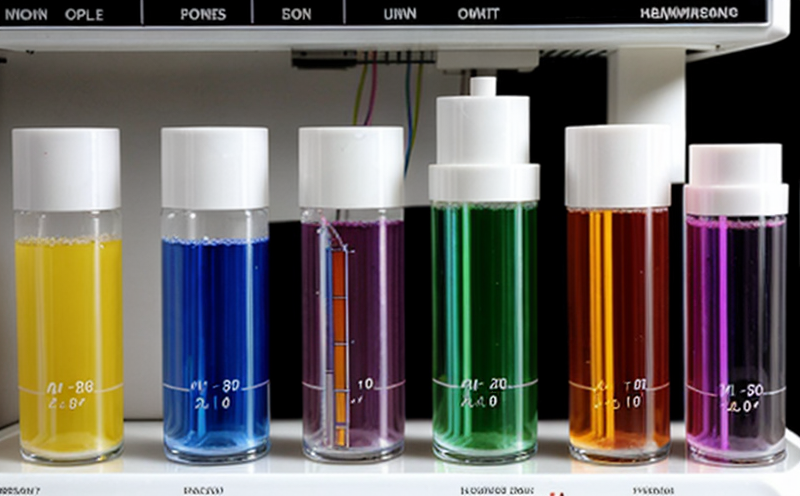BS EN 15936 Organic Carbon Testing by Chromatography
The British Standard and European Norm (BS EN) 15936 is an internationally recognized standard that provides a robust framework for measuring the total organic carbon content in water. This method utilizes advanced chromatographic techniques to ensure precision, accuracy, and reliability in quantifying organic compounds.
Organic carbon testing by chromatography is essential across various sectors including pharmaceuticals, food and beverage processing, environmental monitoring, and industrial water treatment facilities. Compliance with this standard ensures that manufacturers and service providers meet stringent quality control benchmarks set forth by regulatory bodies worldwide.
The process involves collecting samples from the source under controlled conditions to prevent contamination or alteration of sample integrity. Samples are then prepared according to specified protocols which may include dilution, filtration, or conditioning steps depending on initial characteristics like turbidity levels or particle size distribution.
Instrumentation used in this method typically comprises a combination of carbon analyzers and chromatographic systems capable of separating complex mixtures into their constituent components. Key equipment includes gas chromatographs (GC), high-performance liquid chromatographs (HPLC), and thermal analyzers.
The analytical approach begins with sample introduction followed by separation through column packing materials designed to selectively retain certain organic molecules based on polarity differences or molecular weight ranges. Once separated, the components are detected using appropriate detectors such as flame ionization detector (FID) or photoionization detector (PID).
After detection, quantitative analysis is performed which can be done either manually via calibration curves generated from known standards or automatically by software integrated into modern chromatography systems. Results obtained should conform to the accuracy and precision specified within BS EN 15936.
Detailed records must also be maintained throughout all stages of testing including sample identification, preparation procedures employed, operational parameters used during analysis, and final results reported. These records are crucial for traceability purposes and form part of any compliance dossier required by relevant authorities or stakeholders.
In summary, BS EN 15936 organic carbon testing by chromatography represents a sophisticated yet reproducible technique aimed at delivering reliable data on the presence and concentration levels of organic materials in aqueous systems. Its application across diverse industries underscores its importance as an indispensable tool for maintaining water quality standards globally.
Scope and Methodology
| Aspect | Description |
|---|---|
| Sample Preparation | Initial cleaning, filtration, and dilution if necessary. |
| Instrumentation | Gas Chromatograph (GC), High-Performance Liquid Chromatograph (HPLC). |
| Separation Techniques | Column packing materials tailored to specific organic compounds. |
| Detection Methods | Flame Ionization Detector (FID), Photoionization Detector (PID). |
Industry Applications
- Pharmaceutical Manufacturing: Ensuring product purity.
- Food and Beverage Processing: Maintaining hygiene standards.
- Environmental Monitoring: Detecting contamination sources.
- Water Treatment Plants: Optimizing treatment processes.
Environmental and Sustainability Contributions
- Aids in identifying potential pollution hotspots early.
- Promotes efficient resource utilization through better management practices.
- Facilitates the development of cleaner technologies aimed at reducing carbon footprints.





